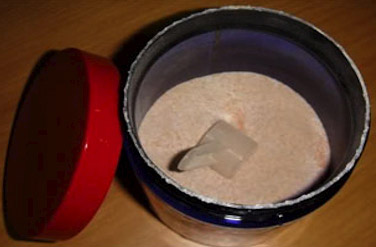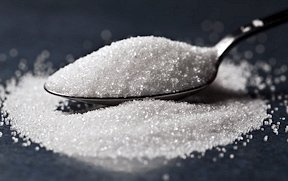CREATINE HCL REVIEWS: IS CREATINE HYDROCHLORIDE EFFECTIVE?

Hundreds of different bodybuilding supplements have come and gone over the years, but the popularity of creatine has never wavered.
That’s because it’s safe, it’s cost effective and it flat out works. There’s really no confusion about that.
What there does seem to be confusion about are the various different types of creatine available, and which one is superior for maximizing muscle size and strength gains.
We started off with the original creatine monohydrate back in the 1990’s, and since then an endless list of “new and improved” creatines have made their way onto the shelves.
One of the most recent of these new forms is creatine hydrochloride, or creatine HCl for short.
As the name implies, this form is created by attaching a hydrochloride group to creatine in order to create a salt.
Like most other “breakthrough” creatine forms on the market, creatine HCl is surrounded by a lot of hype and big claims about its muscle building effectiveness.
But is creatine HCl superior to standard creatine monohydrate? Should you make the switch?
Let’s examine the main claims that are made about creatine hydrochloride in comparison to creatine monohydrate and you can then decide for yourself…
Claims Made About Creatine Hydrochloride’s Superiority

“No Loading Required”
This is an irrelevant point, because there is no need to perform a loading phase with any form of creatine, whether it’s monohydrate or creatine hydrochloride.
While a loading phase can help you see results in a shorter time frame, a standard daily dosage will result in full creatine saturation of the muscles within 2-3 weeks.
“No Bloating”
I really don’t know where this idea even came from, but creatine monohydrate does not cause “bloating” of any kind.
Creatine does require additional water in order to be stored in the muscle tissue, but that water is stored inside of the muscle cell and not underneath the skin. This is actually one of the primary benefits of creatine usage, as it gives your muscles a fuller and harder appearance.
Sure, creatine hydrochloride does not cause bloating, but neither does creatine monohydrate.
“No Upset Stomach”
Creatine monohydrate is the most studied sports supplement in history, and when used within the recommended 3-5 gram per day dosage does not produce any unwanted side effects in terms of upset stomach or GI distress in otherwise healthy individuals.
“No Need To Cycle Off”
As is the case with the loading phase issue, there is no need to cycle your creatine, whether it’s monohydrate or creatine hydrochloride.
External creatine consumption does not alter the body’s natural production of creatine when supplementation stops, nor does cycling reduce side effects (since there are none) or enhance results further.
Again, this is just another irrelevant point.
“No Water Retention”
As previously mentioned, the increased intracellular water retention is one of the primary benefits of creatine supplementation. This is NOT a drawback.
Creatine requires additional water in order to be stored in the muscles, and to say that creatine HCl does not cause water retention is basically saying that it doesn’t work.
Both creatine hydrochloride and creatine monohydrate will cause intracellular water retention, and this directly translates to improved muscle growth and performance.

Here’s the simple reality of the situation…
When it all comes down to it, there’s just no good reason to deviate from the monohydrate form when it comes to creatine supplementation.
2-3 weeks of consistent creatine monohydrate use (at 3-5 grams per day) will result in a near 100% creatine saturation of the muscle tissue, and without any unwanted side effects.
There’s really nothing more that you can ask for.
It’s not that there’s anything bad about creatine hydrochloride itself, but why pay 8-10x the cost when you can achieve the maximum benefits that creatine has to offer by using the monohydrate form?
One of the primary reasons why creatine HCl is claimed to be superior is because it is more water soluble and thus requires a smaller dosage. However, on a per-serving basis the cost is still significantly higher.
On top of this, creatine HCl is still a relatively new supplement, and at this point there isn’t any concrete research directly demonstrating its effectiveness in comparison to creatine monohydrate.
The Bottom Line On Creatine Hydrochloride
You’re free to use whatever form of creatine you’d like, but creatine monohydrate is the most researched sports supplement in history, has a near 100% absorption rate in the body, no side effects and is the most cost-effective form available, period.
Unless new research surfaces showing a different form of creatine to be clearly superior to monohydrate for building muscle and gaining strength, the choice at this point is really a no-brainer as far as I’m concerned.
Don’t fall for other overrated supplements either.
If you found this article helpful, make sure to sign up for your FREE custom fitness plan below...




